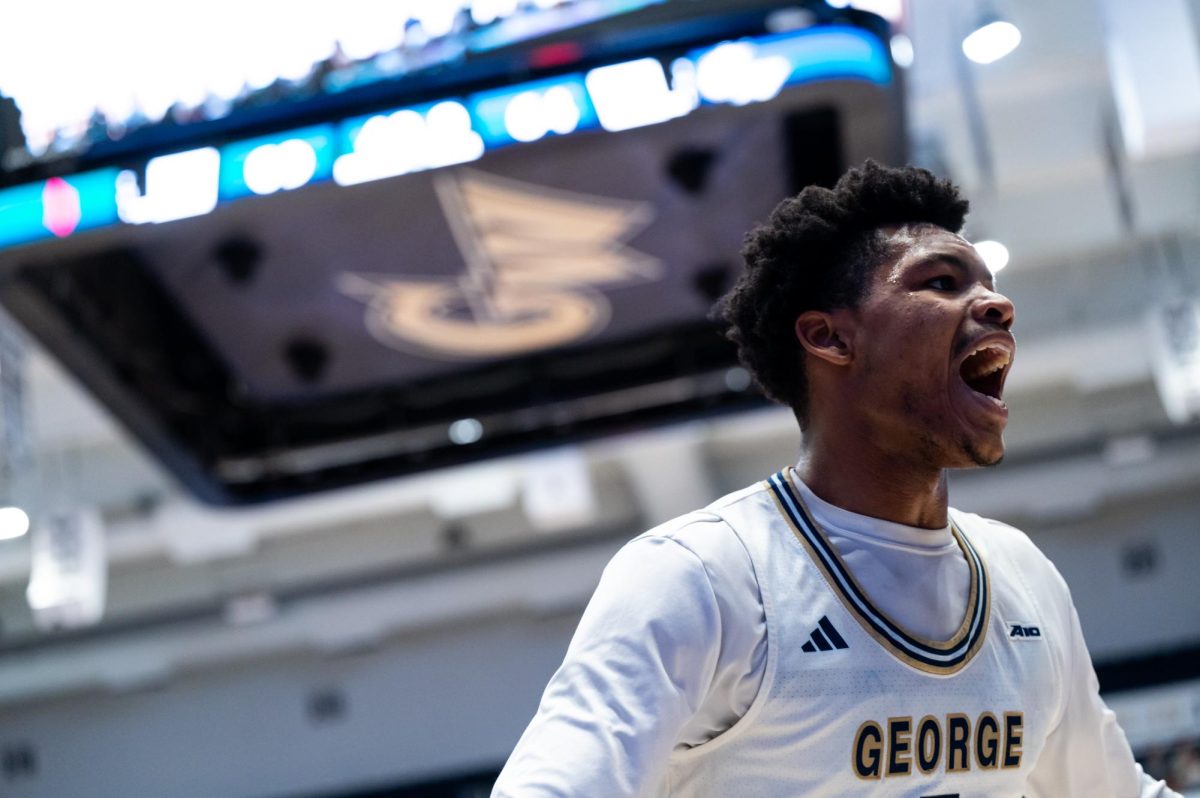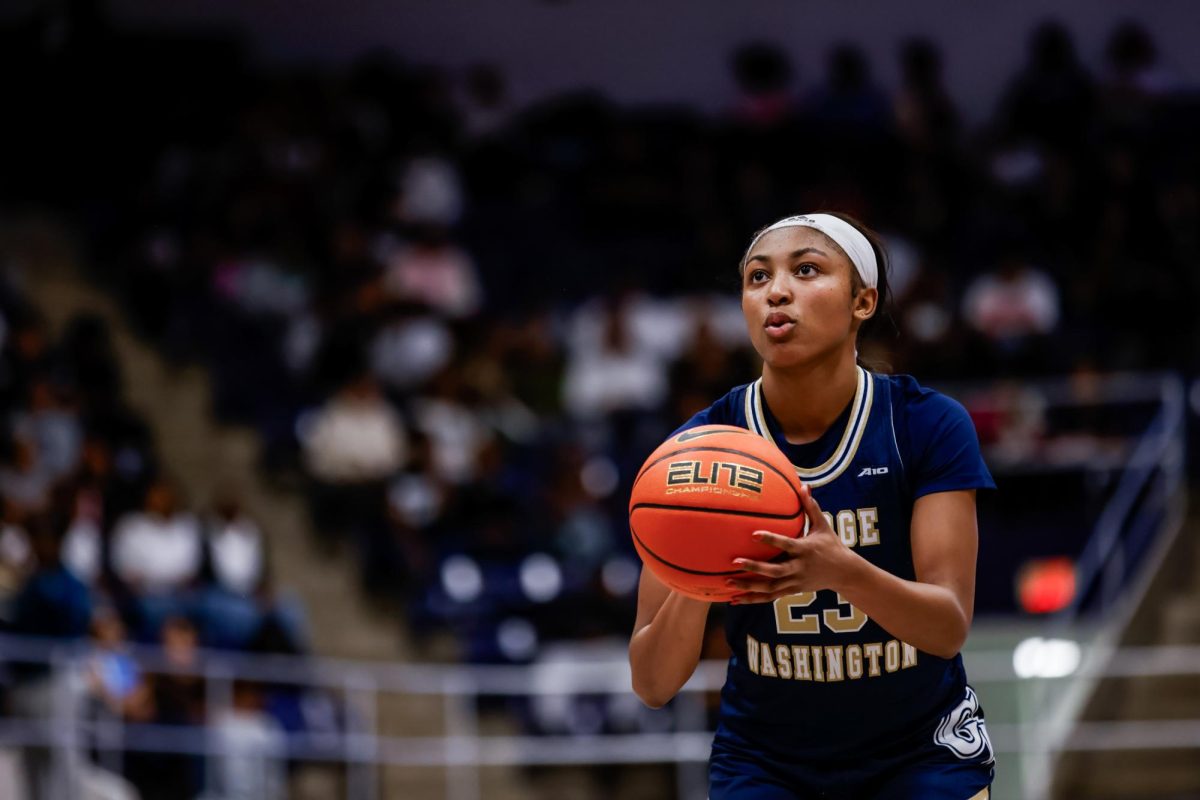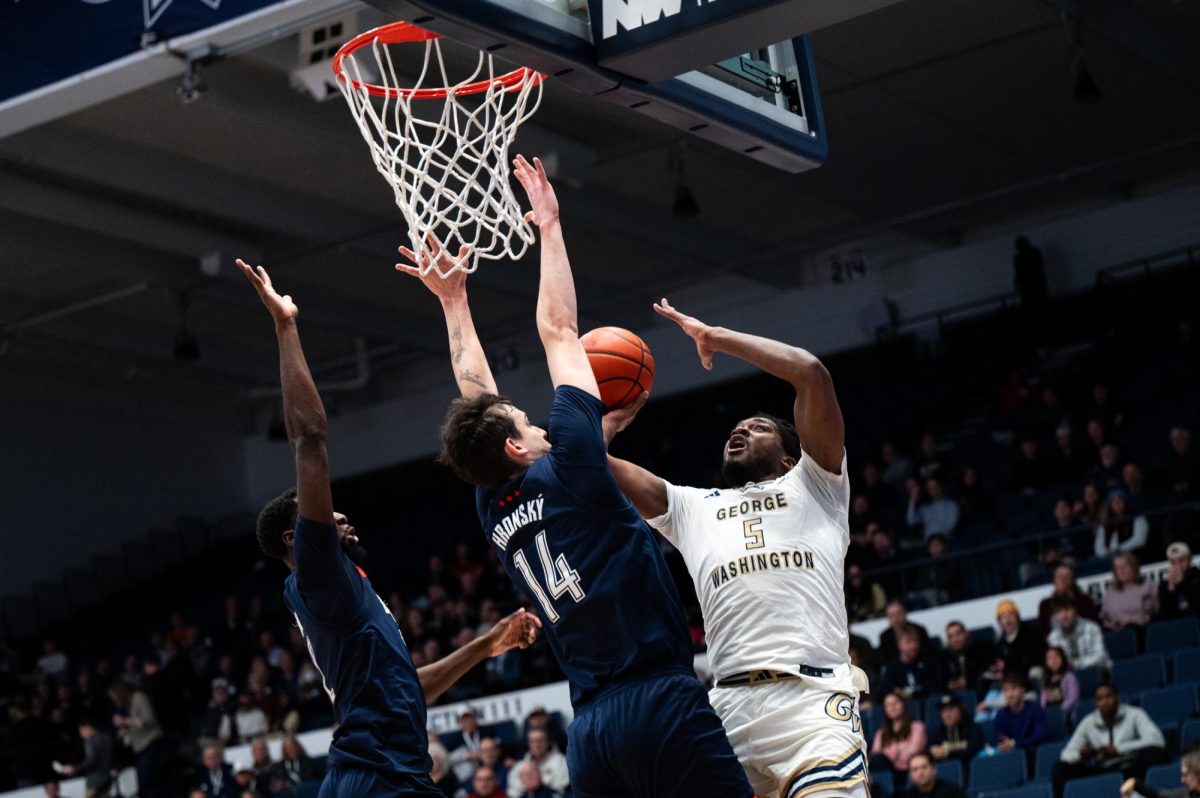 1 Tuffy Leemans
1 Tuffy Leemans
GW Athlete of the Century
Football, Basketball (1933-36; Superior, Wis.)
When Alphonse Tuffy Emil Leemans first came to college, it was in Oregon – not Foggy Bottom. Fortunately for everyone, that excursion was brief, and Leemans soon made his way to D.C. Here, the Bounding Belgian began the athletic career that would make him a D.C. legend and – decades upon decades later – the greatest Colonial who ever lived.
If you think of any of the hotshots, he was one of the early ones, says George Jack Brown, team manager at the time. He had the deceptions, the false starts that you see nowadays.
In a time when numbers were much less inflated than they are today, and being a back was about as specific as you could get about positions, Leemans ran for a GW-record 2,382 yards on a record 490 carries during his three-year career. As he wowed the packed houses at Griffith Stadium in the heyday of GW football, he led GW to some of its greatest gridiron success (the team went 17-9-2 in his career with wins over Auburn and Oklahoma). Along the way, he also set school records for carries (207) and yards (1,054) in a season.
He was All-District and All-Eastern his last two years and honorable mention All-American his senior year. In addition, he was a proficient passer and punter, and he also starred for the basketball team.
As a 195-pound, 6-foot back, he was actually rather stocky for the time. It was everyone’s lament at GW that if the shifty, savvy Leemans only had some blocking, he could really do something.
Tuffy found that blocking with the New York Giants. After a stunning most valuable player performance in the College All-Star game at Chicago’s Soldier Field, he joined the Giants for the 1936 season and promptly led the league in rushing.
During eight seasons and 80 games, he would rush for 3,142 yards, pass for 2,324 and receive for 442. He had 16 touchdown passes and averaged 14 yards per punt return. He was All-NFL in 1936 and 1939.
December 7, 1941, was `Tuffy’ Leemans Day at the Polo Grounds. The 55,051 fans only learned after the game that Pearl Harbor had been bombed.
In 1978, he was inducted into the Pro Football Hall of Fame. A year later, he died at the age of 66.






